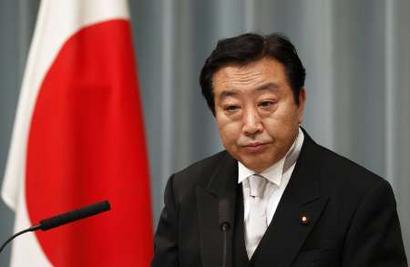Naoto Kan, Japan’s PM steps down.
Yoshihiko Noda, the former Japan’s finance minister, has become the new prime minister.
Yoshihiko Noda, 54, is the seventh prime minister in six years, inheriting a parliament racked by division, a sluggish economy and a nation struggling to recover from the 11 March tsunami and the Fukushima Daiichi nuclear crisis.
The new prime minister’s election, after last week former PM Naoto Kan resignation, was a formality in the lower house of parliament, in which the governing Democratic party of Japan (DPJ) has a comfortable majority.
Yoshihiko Noda, who became the leader of DPJ on Monday, was later approved as prime minister by the upper house too, which the opposition controls.

Noda had four competitors for the position DJP’s leader in a contest that exposed deep factional divisions.
The new prime minister may attempt to solve the party inside problems by appointing his opponents to new cabinet posts. There were no indications until now that he was preparing to bring in members of other parties, whose co-operation he needs to end political blockage in the upper chamber.
Yoshihiko Noda highlighted that he is open to the idea of a grand coalition that could see members of the Liberal Democratic party return to the cabinet two years after they were beaten by DPJ.
The new prime minister priorities are to revive the economy, rein in the strong yen and oversee the reconstruction of the tsunami-ravaged north-east coast and the operation to stabilize Fukushima Daiichi.
“I’m aware that we have problems with the strong yen and deflation,” Yoshihiko Noda told media.
“But at the same time, we need to maintain fiscal discipline.”
As finance minister, Yoshihiko Noda approved three interventions in the global currency markets in attempt to weaken the yen.
Possible successors for Japan’s finance minister include Katsuya Okada, the DPJ’s secretary general, and Yoshito Sengoku, a former socialist turned free marketeer.
